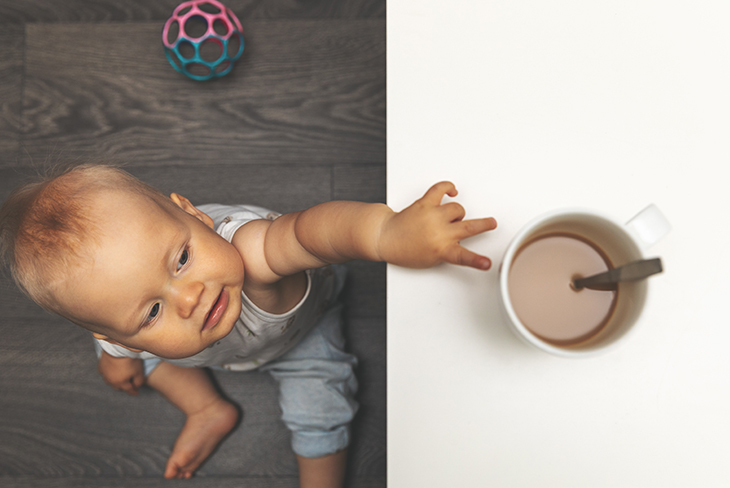First aid for burns

As many as 1,300 South African children die from burn-related injuries every year. Here’s how to make sure your little one doesn’t become part of this statistic.
According to Suretha Breedt, Unit Manager at Life Cosmos Hospital in Witbank, most of the burns that land South Africans – adults and children alike – in hospital could have been prevented.
Burn-prevention tips
Prevention is all the more critical when you consider the factors that place children at particular risk for burn injuries.
For one thing, their skin is thinner than that of adults, so something that might hurt you just a little could result in serious injury for your child. Added to this, a child’s curious nature, combined with their relatively limited mobility, means that they’re exposed to many potential dangers.
As a result, even newborn babies are at risk of burns. Some of these potential risks may include:
Hot beverages
While a steaming hot cuppa is often a way for a mother to unwind, it can be a major hazard for a child. Imagine an inquisitive little hand reaching up to a table to see what’s inside a mug, and upsetting that mug, filled with hot liquid.
Paraffin
In South Africa, many babies, toddlers and young children face another threat: paraffin. In fact, most burns in South Africa come about because of exposure to this highly flammable substance, as the plethora of headlines relating to the shocking number of shack fires attests.
Heaters and fireplaces
Heaters and fireplaces are equally likely to cause a problem, which is why it’s vital that heaters are used correctly. They should never be covered, for instance, nor should they be left on all night.
Bathwater
Most mothers are vigilant about testing the temperature of a bath, but that vigilance may wear off a little as their children become sufficiently independent to get in and out of the bath by themselves.
Prevention of burns at home
The first step in burn prevention is awareness. Take a look around your house for hazards from your little one’s perspective.
‘You can protect your child by taking simple steps,’ Suretha explains. ‘Never leave them unattended near an open fire, like a braai. Lower the temperature of your geyser, and when running a bath, start with cold water before gradually adding the hot.’
Suretha suggests you should also:
- Ensure that pots on the stove are not angled with their handles pointing outwards, easy for a toddler to pull down.
- Pack lighters and matches out of your child’s reach at all times.
- Cover all cables, cords and electrical outlets. Pack them away after using them.
- Keep hot drinks far away from your child and not balancing precariously on or close to table edges.
- Teach your children about potential dangers as soon as they are old enough to understand.
- Attend a course on first aid for burns so that you know how to respond in case of an emergency.
- Never leave a paraffin appliance on unattended.
Burn treatment
First, says Suretha, take care not to overcool your child, even though your instinct will be to make the area as cold as possible. Resist the urge to remove all clothing or materials stuck to the burn.
The best way to treat the injury is by rinsing it with cool water, Suretha says. ‘Ointment, substances like melted butter or anything else you’ve heard may help heal the burn may actually cause infection.’
When should you see a doctor?
‘If the burn is larger than the size of the child’s palm, or if it begins to blister immediately, urgent medical assistance is required,’ says Dr Dawid Roux of Life Cosmos Hospital.
He adds that burns caused by electric shocks should also be seen by a doctor as soon as possible, as these may cause internal injuries, while inhalation of smoke is also considered serious. Even small burns may require medical intervention if they appear to be infected, he concludes.
The information is shared on condition that readers will make their own determination, including seeking advice from a healthcare professional. E&OE. Life Healthcare Group Ltd does not accept any responsibility for any loss or damage suffered by the reader as a result of the information provided.

